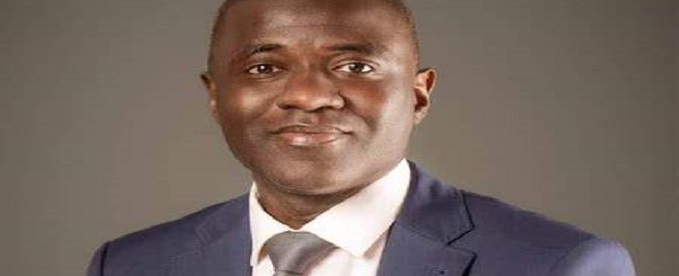Telecom
Dell Forecasts 5G Technology to be Enterprise Driven in 2021

The fifth generation (5) telecom ecosystem will shift to become more enterprise driven from consumer-focused in 2021 and the fundamental architecture become software-defined, according to John Roese, global chief technology officer, Dell Technologies.

“In 2021, we will have true standalone 5G materialize and it will include advanced features. Enterprise use cases will dominate the technical landscape of 5G for both public and private deployment models.
The fundamental architecture of 5G will move away from the telco and shift to a cloud and IT architecture, which will be open and software-defined for the first time,” said Roese recently while briefing the journalists on the technology trends this year. The Dell senior executive said 5G infrastructure ‘needs to be developed in a very different way with software defined architecture’.
Roese said in 2021 and 2022 the industry would see the shift to building edge computing platforms that can run multiple edge experiences and software-defined services on them to solve the edge proliferation problem. “Edge platforms will become major new areas of on-premise IT capacity delivered as both product and as-a-service,” he added.
Dell said 2021 will also be a prominent year for the quantum computing and semiconductor ecosystem.
“This is the year that will enable broader software development ecosystems to experiment with quantum computing. This is the first year that a computer scientist with no prior access to quantum computing can go into a simulator and start to learn the language of quantum,” said Roese.
According to the company, the industry will move from the era of homogeneous compute to an era of heterogeneous compute.
This means that homogenous compute like x86 will be highly augmented with domain specific architectures (Accelerators), and semiconductor ecosystems are being reorganizes for this domain.
Telecom
Vitel Wireless, Nigeria’s First MVNO to Launch Operations This Quarter

Vitel Wireless, a mobile virtual network operator (MVNO), which recently made history as the first operator in Nigeria to be allocated a mobile number series by the Nigerian Communications Commission (NCC) is set to launch operations this quarter.

This is sequel to announcement by Wireless Technology Labs (WTL) that t has built the network of Vitel Wireless, and enabled overseas roaming, in preparation for Vitel’s launch.
Vitel Wireless, which is headquartered in Lagos, was licensed by the NCC in 2023 and will be the country’s first MVNO.
Its launch is set to shake up Nigeria’s telecoms market with Vitel offering an alternative to the services of the country’s four major operators—MTN, Airtel, Globacom and 9Mobile.
Vitel’s network will go live in Nigeria’s major cities first and then expand nationwide.
Pricing will be competitive for basic services like voice, SMS and data and Vitel will also focus on value added services like location-based services (LBS) and IOT.
Vitel Wireless is building Experience Centres in Lagos, Abuja, Enugu, Port Harcourt, Kano and Nigeria’s other major cities where customers can purchase SIM cards.
In addition, Vitel is building a distributor network with SIM cards available through retail channels and online subscriptions using eSIMs.
WTL has already completed the integration of Vitel’s infrastructure with the network of a major MNO and has also enabled international roaming using its proprietary advanced core systems.
This means that Vitel will be able to launch as soon as the NCC approves its network and operational model.
Kenneth Nwabueze, CEO of Vitel Wireless, said “We are going to be offering innovative solutions beyond what the big four operators who have dominated Nigeria’s telecoms market are currently offering. We are investing heavily in our operations, and our work with WTL will enable us to launch in Q2, 2025”.
WTL, which is headquartered in Belgium, has been active in Nigeria and across Africa for more than 20 years working with operators of all sizes to rollout both urban and rural networks. Its work has garnered widespread recognition and industry awards.
WTL has already enabled the networks of two of the 46 new MVNOs licensed by the NCC, and recently announced that it is working with Nigeria’s first Mobile Virtual Network Enabler (MVNE) which is constructing new mobile network infrastructure to provide capacity for emerging MVNOs through its Platform as a Service (PaaS) model.
Mr. Satya Mekala, CEO of WTL, said, “I congratulate The NCC for licensing new operators to improve competitiveness, increase rural coverage and drive the adoption of digital services including Fintech, Edtech, Agriculture, IOT and more. I further thank Vitel for giving us the opportunity to showcase our advanced core technologies and wish them great success in becoming the first ever MVNO in Nigeria”.
Telecom
ipNX Partners NCC to Deepen Broadband Penetration

ipNX, Nigeria’s leading information and communications technology company and connectivity provider is collaborating with the Nigeria Communications Commission (NCC) to explore opportunities for further growth and development policy alignment in support of the Federal Government of Nigeria’s broadband penetration and digital transformation agenda.

The company recently visited NCC at it Abuja office to strengthen the collaborative relationship between both institutions.
The delegation from ipNX, which was led by Ejovi Aror, group managing director, was received by Dr Aminu Maida, executive vice chairman/chief executive officer, Nigeria Communications Commission.
During the visit, the discussions focused on the current state of internet access in Nigeria, the myriad of challenges being faced by service providers, including but not limited to vandalism of key infrastructure and right of way, as well as the regulatory landscape.
The engagement highlighted the shared vision of both institutions to bridge the digital divide and empower Nigerians through reliable and affordable internet connectivity.
As a leading player in Nigeria’s ICT sector, ipNX reaffirmed its unwavering commitment to the realisation of the National Broadband Plan, which aims to achieve 70% broadband penetration this year.
With over two decades of pioneering innovation within the sector, the company has consistently demonstrated resilience across different economic cycles without compromising quality of service and affordable pricing.
Commenting on the visit, Aror, stated, “Our engagement with the Nigeria Communications Commission is a positive step towards shaping the future of telecommunications in Nigeria. At ipNX, we believe that active collaboration with regulators and other key stakeholders is critical to achieving the development targets outlined in the National Broadband Plan. We are proud to continue playing a pivotal role to drive broadband penetration and ensure that every Nigerian, irrespective of their location, has access to the transformative power of the internet.”
The meeting also emphasised the importance of policy alignment and regulatory frameworks that enable innovation, investment, and sustainable growth in the telecommunications sector.
As Nigeria continues to make strides in its digital transformation journey, ipNX stands ready to leverage its expertise, infrastructure, and partnerships to support the realisation of the government’s broadband penetration objectives.
The company remains dedicated to empowering individuals, businesses, and communities through cutting-edge technology and unparalleled connectivity solutions.
Telecom
Truecaller Surpasses 450m Users, Expands Global Reach

Truecaller, the popular caller identity app, announced that it surpassed 450 million users earlier this week, expanding it’s global reach.

The company added 50 million users in the past 10 months, including 15.5 million since the beginning of 2025.
Leadership Changes and Market Expansion
India remains Truecaller’s largest market, a factor reflected in the company’s recent leadership decision.
Following the decision of its co-founders to step back from daily operations last year, Truecaller appointed Rishit Jhunjhunwala, previously the Chief Product Officer and MD of India operations, as the new CEO.
While India continues to be a key market, Jhunjhunwala noted that the company is seeing rapid growth in other regions.
“We are proud that we now serve more than 450 million users globally. As before, we continue to see steady growth in our largest market, India, but the fastest relative growth is in markets outside of India.
“So far in 2025, we see strong growth trends in Latin America, South Africa, Kenya, Nigeria, Malaysia, and the US,” Jhunjhunwala wrote in a blog post.
Regulatory Challenges in India
Despite its dominance in India, Truecaller faces potential challenges as the country’s telecom department pushes for mobile carriers to implement a government-backed caller ID system.
This move could introduce competition to Truecaller’s services in one of its most crucial markets.
Financial Performance and Market Position
Truecaller maintained an active user base of nearly 430 million throughout Q4 2024. The company reported strong financial results for the quarter ending in December, with:
Net sales increasing by 23% year-over-year
Profit after tax rising by 29%
Stock price up more than 33% year-to-date
Product Enhancements and AI Integration
Earlier this year, Truecaller improved its caller ID functionality for iOS, overcoming previous limitations imposed by Apple’s operating system.
The company has also been expanding its offerings beyond caller identification by introducing:
Call recording and transcription features
An AI-powered assistant for call screening
Enhancements to its SMS and chat functionalities
With these advancements, Truecaller aims to solidify its position as a comprehensive communication platform while navigating competitive and regulatory challenges.

 News3 days ago
News3 days agoNIPSS Projects Petrol Prices to Hit ₦750/Litre Before Year’s End!

 E-Financial3 days ago
E-Financial3 days agoFidelity Bank Reports N385.2Bn Pre-Tax Profit for 2024

 E-Business3 days ago
E-Business3 days agoNIMC Says NIN Mandatory to Government Loans

 General News3 days ago
General News3 days agoFinancial Cyberthreats Report Reveals 3.6Ttimes Surge in Mobile Banking Malware

 News3 days ago
News3 days agoFG to Create 1m Technology Jobs – Minister

 E-Financial3 days ago
E-Financial3 days agoNew Investment Law Empowers SEC to Obtain User Data from Telcos

 E-Business3 days ago
E-Business3 days agoAfrica’s Data Workers are Being Exploited by Foreign Tech Firms – Report

 E-Financial3 days ago
E-Financial3 days agoPonzi Operators Risk 10-Year Jail Term, N20m Fine – SEC

























